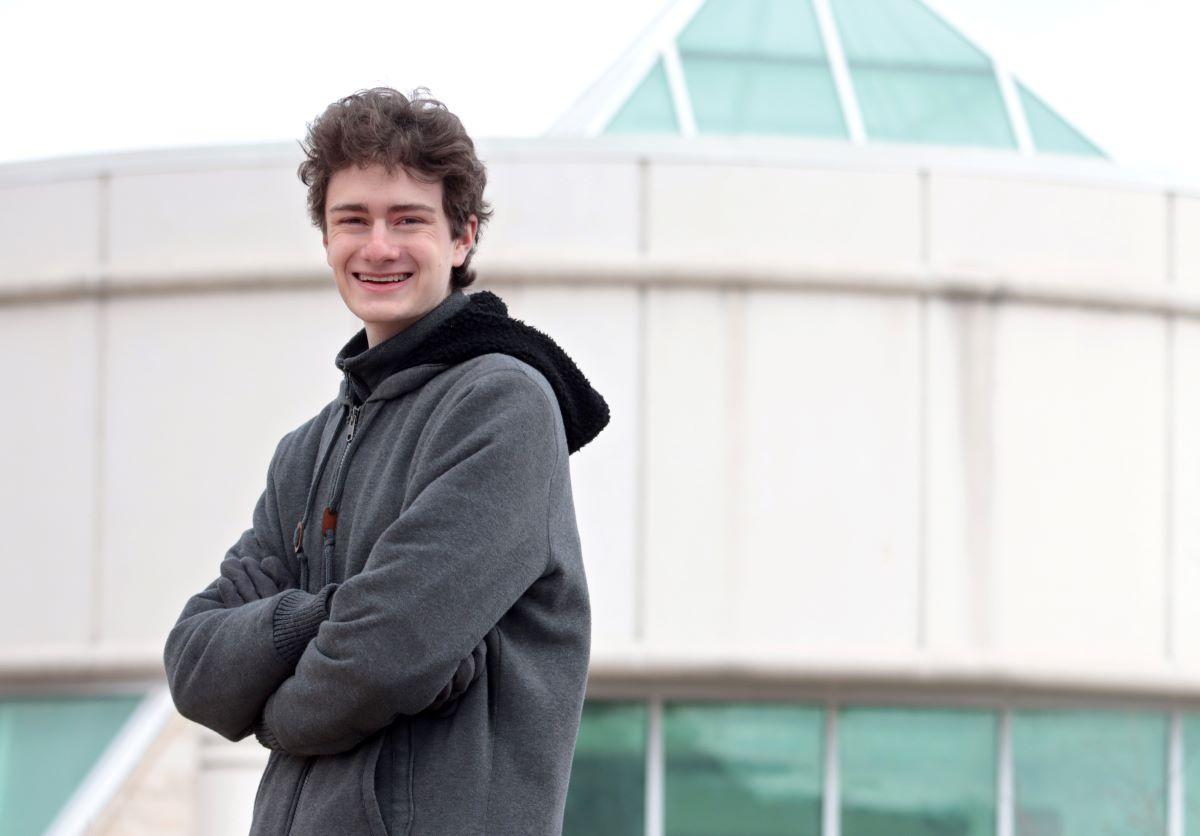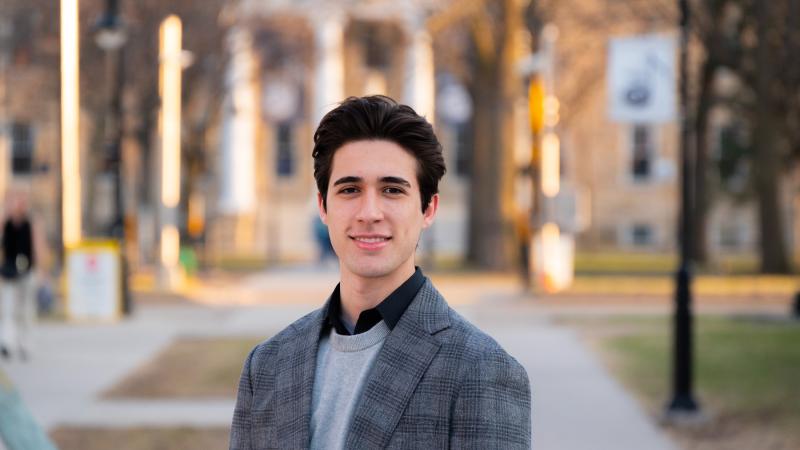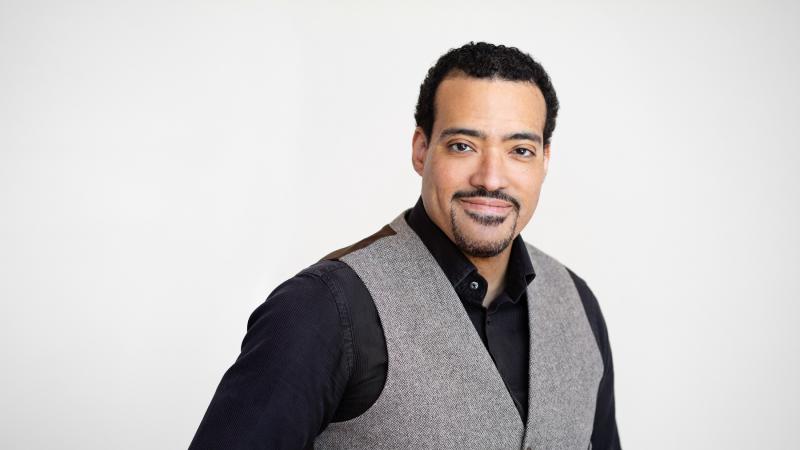Travis Dillon ’21 has received a prestigious National Science Foundation (NSF) award that will assist the mathematics major as he heads to graduate school and pursues a doctorate.
The NSF’s Graduate Research Fellowship Program (GRFP) award, which provides three years of financial support to any institution of his choice, comes a year after Dillon was named a Goldwater Scholar, also a highly competitive honor. It also marks the second consecutive year that a Lawrence senior has received an NSF GRFP award. A year ago, Willa Dworschack ’20, a physics major, earned the honor.
The NSF Fellowship is among the most coveted in STEM fields. Students heading into graduate school as well as students already in a Ph.D. program are eligible to apply for the award from the NSF, an independent agency of the federal government that supports research and education in math and the sciences. Its fellowship award, first launched in 1952, is given to approximately 2,000 recipients a year to support the next generation of STEM leaders as they pursue research-based master’s and doctoral degrees.
No matter where Dillon goes to graduate school—he’s been accepted at and is deciding between Massachusetts Institute of Technology (MIT) and University of California-San Diego—he said the award will give him flexibility, most notably not needing to work to cover expenses.
“I’ll be able to repurpose that time to focus on my classes and research,” he said.
Lawrence has impressive track record with STEM-to-Ph.D. success.
The Newport, Washington, native has excelled in mathematics research during his time at Lawrence. He pursued an independent project that led to two published papers. He took part in a high-level math program in Budapest during his junior year. His work has taken him to Texas A&M’s Research Experience for Undergraduates (REU), a research program sponsored by the NSF, and he’s done research with noted City University of New York professor Pablo Soberón. Along the way, he’s worked closely with Lawrence Assistant Professor of Mathematics Elizabeth Sattler and counts her as an important mentor.
Much of his research has focused on a branch of math known as combinatorics, which involves the study of discrete and finite objects.
“If you want to count or enumerate, arrange or rearrange, or really just understand the inner workings of some finite structure, combinatorics is what’s called for,” Dillon said. “It might sound simplistic or wishy-washy, but it’s not. Combinatorics has grown from a collection of ad hoc techniques to a fairly comprehensive body of knowledge with connections throughout the many subfields of mathematics, and it provides much of the mathematical basis for theoretical computer science and those algorithms that make our fancy-schmancy laptops and phones do so many things so quickly.”
Dillon finished his Lawrence graduation requirements during Winter Term. He’s spending the spring working on various research projects and preparing for a grad school journey that could open a myriad of doors in the world of mathematics. He expects to make a decision on where he’ll attend grad school in the coming days. It’s all part of a deep dive into mathematics that he is relishing.
“I derive a lot of satisfaction from completing projects; I really like stepping back from the finished product and seeing that I’ve created something,” Dillon said. “So, I get a lot of fulfillment from the work itself. When I heard that I was selected for an NSF fellowship, though, I was, as the kids say, pumped. No matter how much individual satisfaction I get from my work, it’s always affirming to hear someone else say that you’re on the right track, especially when this someone else is a panel of experts in the field. It’s encouraging and energizing.”




